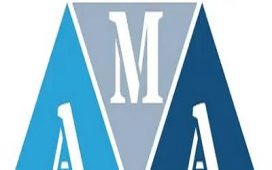A judge has dismissed copyright infringement claims against DeviantArt and Midjourney in the US – and has allowed a case against Stability AI to continue.
In January, three artists – Sarah Andersen, Kelly McKernan, and Karla Ortiz – sued the three aforementioned startups, accusing the businesses of using people’s copyrighted artwork without permission to build text-to-image AI tools.
The artists argued the startups not only made unauthorized copies of people’s art when collecting up images and training neural networks on those pictures, but also the content generated by those models – incorporating themes, elements, and styles created by human artists – was unlawful derivative work.
It was therefore claimed humans were being unfairly ripped off. The trio sued DeviantArt and Midjourney, which built text-to-image tools based on Stability’s open source Stable Diffusion software, as well as Stability as well.
On Monday federal district Judge William Orrick in San Francisco dismissed all copyright violation claims made by McKernan and Ortiz since neither of them registered their work with the US Copyright Office. He decided, however, to keep Andersen’s case going.
Her allegations against DeviantArt and Midjourney, however, were also thrown out. Judge Orrick said the cartoonist and illustrator had failed to show how those two defendants had directly infringed upon her rights, considering they didn’t scrape any images nor train Stable Diffusion themselves.
Instead, the training dataset was collected by LAION, a non-profit organization that reportedly scraped public images from the internet at the direction of Stability, who then went on to develop Stable Diffusion using that data. For that reason, Judge Orrick threw out the case against DeviantArt and Midjourney but not Stability for Anderson.
“The motions to dismiss are granted in full, except for the direct copyright infringement claim asserted by plaintiff Anderson against Stability,” he ruled [PDF], referring to the defendants’ efforts to have the proposed class-action suit binned.
“Plaintiffs are given leave to amend and attempt to cure the deficiencies. The amended complaint, if any, must be filed within thirty days of the date of this order,” he said.
Orrick advised the artists to clarify whether their cases against DeviantArt and Midjourney are based on both companies’ use of Stable Diffusion, or their own custom products, or both. He also cast doubt on whether it was possible to claim that every image in LAION training dataset was copyrighted, and that all AI-generated outputs are unlawful derivatives of images.
“Even if that clarity is provided and even if plaintiffs narrow their allegations to limit them to output images that draw upon training images based upon copyrighted images, I am not convinced that copyright claims based [on] a derivative theory can survive absent ‘substantial similarity’ type allegations,” he said.
In short, Orrick doesn’t seem to be persuaded by their arguments that AI-generated outputs are merely derivatives of images, even if they are based on copyrighted works; they may not be similar enough to original images to meet the legal standard needed for infringement claims.
The fight goes on
The plaintiffs’ lawyers confirmed to The Register they would be filing an amended complaint.
“Judge Orrick sustained the plaintiffs’ core claim pertaining to direct copyright infringement by Stability AI, so that claim is now on a path to trial,” lawyers Matthew Butterick and Joseph Saveri told The Register in a statement.
“As is common in a complex case, Judge Orrick granted the plaintiffs permission to amend most of their other claims. We’re confident that we can address the Court’s concerns. We will be filing an amended complaint in November. In the meantime, discovery in the case is proceeding.”
Stability AI, which is now firmly in the legal cross-hairs, told The Register it believes it has a legitimate business model.
“We are committed to putting Stability AI’s tools in the hands of every day creators through open models that uphold the highest standards of fairness, safety, and legality,” it said.
“We acknowledge that AI raises important questions about the integration of these models and tools in our everyday lives. While we don’t have all the answers, we remain focused on developing the best open models for our millions of users worldwide through open and constructive dialogue, innovative technologies, and best practices in the application of fair, competitive, and practical rules governing AI development.”
The Register has also asked DeviantArt and Midjourney for comment. ®











